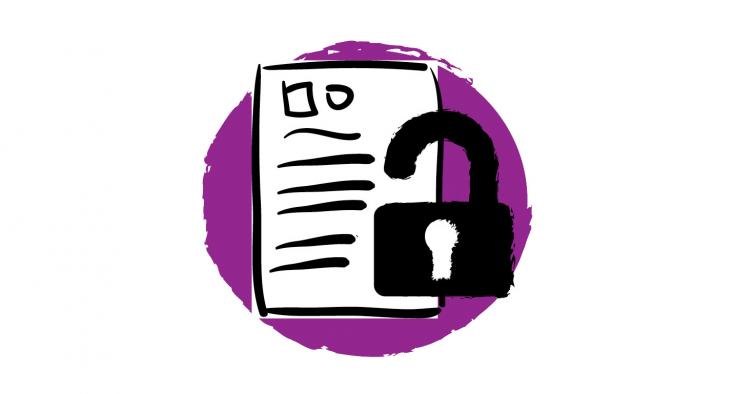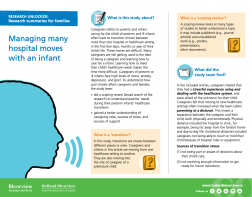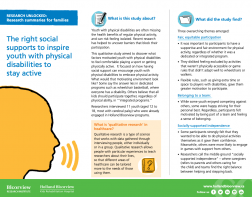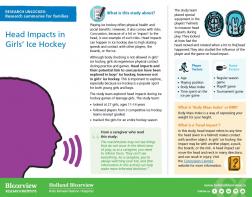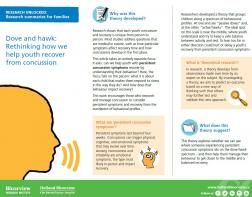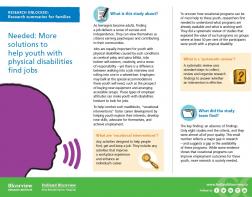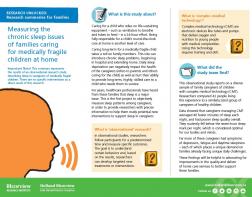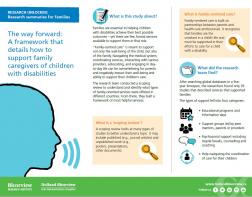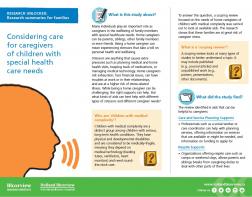Holland Bloorview Kids Rehabilitation Hospital (Holland Bloorview) is proud to launch the first in a series of 11 research lay summaries, co- designed and informed by clients and families. Called ‘Research Unlocked: Research summaries for families', this unique and innovative initiative ensures investments in research, focused on children and youth with disabilities is available and accessible to those they pertain to most.
“Health research should be engaged with the people it affects most – including kids, youth, and families. Research impacts can be more meaningful when information is shared and studies are talked about with kids and their caregivers,” says Rebecca Nesdale-Tucker, Research Family Engagement Committee (RFEC) member. “All families should have easy access to evidence-based studies that serve to create the best lives possible for children and youth. ‘Research Unlocked’ helps to make this happen by summarizing findings on treatments, innovative approaches and technologies, and social inclusion for kids of all ages and abilities, within and outside the walls of Holland Bloorview.”
Tangible barriers – including inability to access academic journals and complex academic language – limit opportunities for clients and families to understand research findings to inform important health care decisions, and use them in a meaningful way. To address these concerns, the RFEC challenged Holland Bloorview to rethink how research results are communicated with children, youth, families and the broader community. Along with the Evidence to Care team and the Bloorview Research Institute (BRI), clients, families, and scientists partnered to translate research publications into easily-accessible research lay summaries for everyone.
Research Unlocked provides:
- A set of criteria for guiding which peer-reviewed publications to transform into user-friendly summaries
- A 10-step coordinated and barrier-free process to create these summaries that will unlock research
With enhanced access to childhood disability research findings, families are now better equipped to act as conduits to discover for action, bringing information that directly impacts them to the attention of others (including clinicians, teachers, and allies), and to advocate for personalized pathways based on current research evidence.
